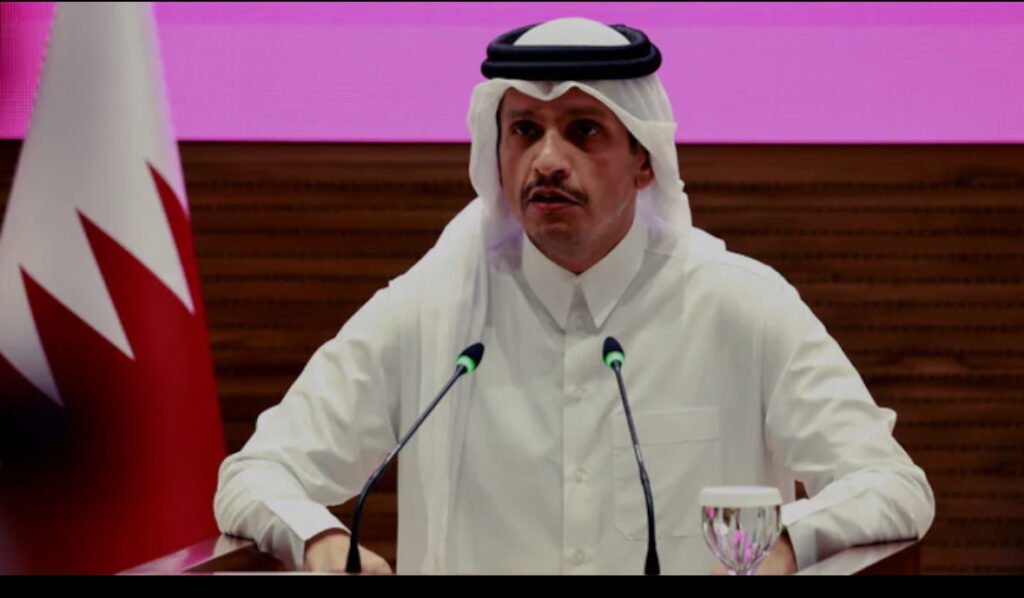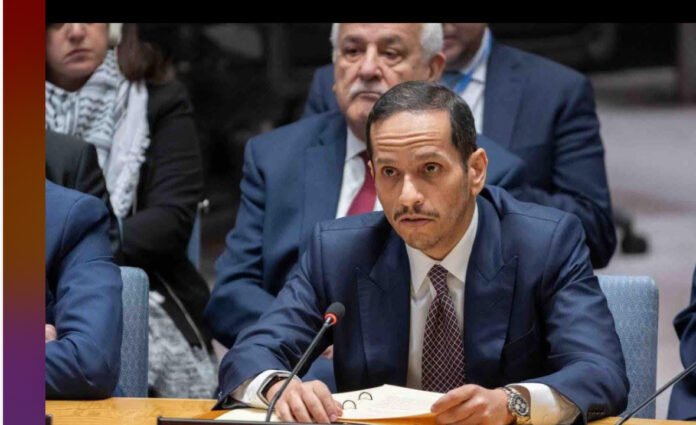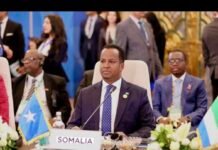NEW YORK, (HAN)— Qatar’s Prime Minister, Sheikh Mohammed bin Abdulrahman Al-Thani, has told the United Nations Security Council that his country reserves the right to respond to what he described as an Israeli attack, warning that continued aggression in the Middle East risks plunging the region into deeper instability.

Speaking at a special Security Council session on the Middle East, the Qatari leader said no state could remain passive in the face of threats to its sovereignty. “Qatar has the right to respond to the Israeli attack,” he said, urging the UN to “uphold international law and protect the principles of justice and accountability.”
Al-Thani condemned what he called Israel’s “escalating violations” against civilians in the occupied Palestinian territories, stressing that the ongoing bombardments have created a humanitarian crisis. He called on the Security Council to act decisively to prevent further bloodshed and to press for an immediate ceasefire.
Qatar’s Mediating Role
Qatar has long positioned itself as a regional mediator, maintaining open channels with both Western allies and regional groups, including Hamas. The Gulf state has also provided billions of dollars in humanitarian assistance to Gaza over the past decade, working with the UN to fund reconstruction, health services, and aid distribution.
However, the Prime Minister’s sharp warning at the UN signals a harder line, suggesting that Doha may reassess its diplomatic posture if Israeli attacks continue. Analysts say Qatar’s statement reflects growing frustration among Arab states over what they see as the international community’s failure to rein in Israel’s military campaign.
Rising Regional Tensions
The Prime Minister’s remarks come amid a surge in violence across the region. Israeli airstrikes in recent weeks have targeted multiple sites in Gaza and southern Lebanon, while rocket fire from militant groups has intensified. Civilian casualties are mounting, raising fears of a wider war that could draw in neighboring states.
Qatar’s intervention adds to increasing pressure on the UN Security Council, which has faced criticism for its inability to reach consensus on a ceasefire resolution due to divisions among its permanent members.
Call for Accountability
Al-Thani warned that unchecked Israeli actions undermine international law and the credibility of global institutions. “If the Security Council fails to act, it sends a dangerous message of impunity,” he said. Qatar, he added, “will not hesitate to defend its sovereignty and stand with the Palestinian people in their struggle for dignity and freedom.”
The Qatari leader also reiterated Doha’s commitment to peace efforts, noting that the Gulf state will continue working with international partners to pursue de-escalation, but emphasized that patience is running out.





